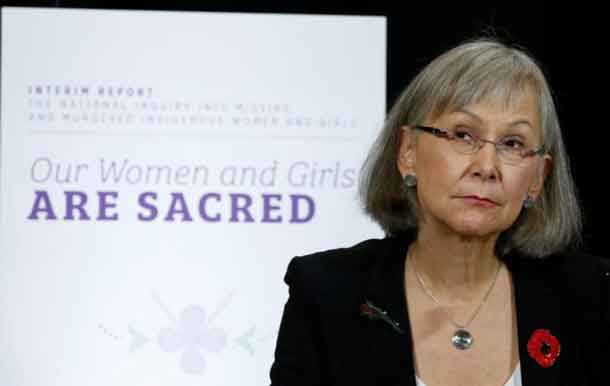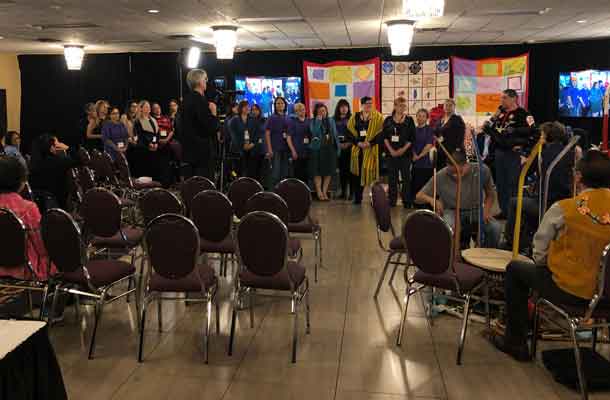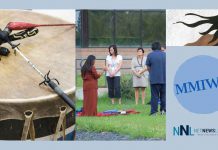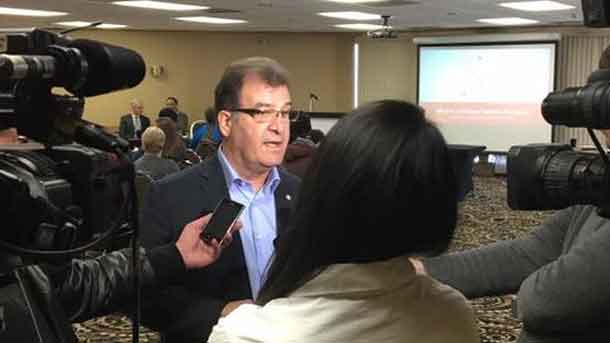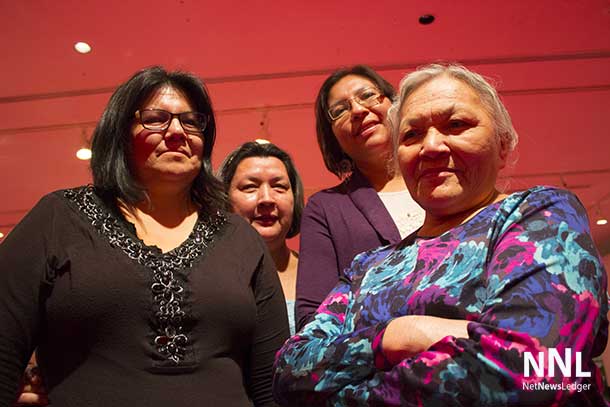

THUNDER BAY – Women – The Ontario Native Women’s Association would like to express publicly our withdrawal of support for the continuation of the Inquiry in its current format and approach. After monitoring the progress of the Inquiry to date, as well as listening to the Chief Commissioner, Marion Buller on July 6th,, 2017, describe the progress of the Inquiry as “lightning speed” in spite of many delays over the past 10 months, we no longer have faith that this Inquiry will meet its mandate and work responsibly with families and communities.
We want to be clear. We want an Inquiry. We were part of the advocacy since 2005 that led to this Inquiry. We want the Inquiry to provide families with the opportunity to be able to share their stories of loved ones. We want families to get the answers that they need and for their experience at the Inquiry to be part of a larger healing journey. We also want the Inquiry to honour the women and girls, to hear the lessons from their stories; and transform these lessons into powerful recommendations for governments, institutions and communities to take up. We want the Inquiry to assist families in their healing and to help Canada, Indigenous nations and communities to provide the guideposts to the changes we need so that we do not lose any more Indigenous women and girls to violence. We do not believe that the Inquiry in its current configuration can achieve these outcomes.
The Inquiry, as it is currently formed, is leaving us with significant doubts on the ability to achieve their mandate. Our concerns include:
a) Restarting the hearings in Thunder Bay
The Inquiry intends to restart their hearings in the Fall of 2017 in Thunder Bay, Ontario, in the week of September 10th. At the announcement the Chief Commissioner described how they have been working “on the ground” to get ready for these hearings. If they were working on the ground then they would know that Thunder Bay is not the best place to start in Ontario at this time. As she was holding her press conference, Thunder Bay was just finishing an emergency two-day meeting regarding the deaths of First Nations youth in Thunder Bay. The emergency session quickly moved to a broader discussion on how this violent act is just one example of the racial violence happening in Thunder Bay.
If in fact the inquiry was on the ground, they would also know that Thunder Bay, in the last year, has been dealing with many issues including: gangs, homicides, violence, and sexual exploitation of Indigenous women. The OIPRD has launched an investigation in the City of Thunder Bay. In June, 2016 the coroner’s inquest on the deaths of the seven First Nation youth concluded with 145 recommendations, and made clear that there are problems of racism in Thunder Bay. The situation of Adam Capay spending four years in solitary confinement in the Thunder Bay Correctional facility spurred the investigation by the Ontario Ombudsman’s office and has led to a larger provincial investigation. The ongoing attempted abductions of young mothers and their children; and the most recent deaths of Barbara Kentner as well as 14 year old Josiah Begg and 17 year old Tammy Keeash and other recent violent deaths in the city has left Thunder Bay vulnerable and in crisis mode. How can the Inquiry think this is the right place to start the Fall Inquiry hearings?
If the Inquiry had been working on the ground then they would have contacted community agencies that are working with the families and the community.
We expect that Indigenous organizations in Thunder Bay that provide services to Indigenous people would be contacted as partners to provide supports. Our community and families will be in need of healing services for their grief and trauma triggered by this process. ONWA has not been contacted, despite repeatedly reaching out to the Inquiry with a clear commitment to support them in their work. There are approximately 12 Indigenous service organizations in Thunder Bay. To our knowledge, none have been contacted. Who will be supporting community members after the week of September 10th when the Inquiry leaves? Who will support them throughout that week? As with the Pre Inquiry sessions, our communities were triggered and leaving agencies like ONWA to be reactive in crisis mode to support the families in providing healing services and meet their needs is irresponsible.
Located within the Terms of Reference the work of the Inquiry is to be trauma informed, respect communities and increase safety of Indigenous women. How does coming to a community in crisis reflect these values?
b) The lack of commitment and willingness to reach out to families
We understand that, as of July 2017, only 400 families have made contact with the Inquiry. Of those 400 families, each goes through a health process and then a legal process. Only 60 have reached the legal process.
Let’s look at who needs to be reached. The Pre Inquiry engagement sessions led by the Federal government had more than 2000 survivors and families members participate. The Native Women’s Association of Canada in the final report of Sisters in Spirit named over 500 Indigenous women who were lost to us. The RCMP report had 1,118 women lost to us. That report did not include all of the NWAC names and did not include all of the police forces in the country. Since the RCMP report, there have been another 40 women and girls lost to us. The Globe and Mail, APTN and CBC have been diligent in ensuring that their stories are told.
Each province and territory developed an Order in Council that committed them to work with the Inquiry in sharing all information that they had of Indigenous women and girls who are missing. We know that in Ontario, the Ministry of the Attorney General, through the Indigenous Justice Division, has done an excellent job of compiling a list.
We expected the Inquiry to work respectfully work with everyone who had names of our beautiful sisters and mothers. We then expected them to reach out to each family, to acknowledge their loss and to ask them if they would like to participate in any way with the Inquiry. Regardless of whether a family wanted to participate in the Inquiry, we would have wanted the Inquiry to connect families with services and programs to support their healing.
c) The lack of culture and ceremony
Where are the Elders in guiding this process? Where is the kindness and respect that would be reflected in all the interactions with the Inquiry if culture was at the core of this Inquiry? Part of our culture is to respect the voices of all Indigenous women regardless of their social and economic status; the Inquiry must not perpetuate violence against Indigenous women in this process by silencing the very voices that are the foundation of this Inquiry. The Inquiry must not further discriminate against Indigenous women based on their healing journey; all Indigenous women must be respected in this process.
Furthermore hosting only one regional session for the entire province of Ontario is not acceptable, as 22% of the Indigenous population in Canada has a relationship with Ontario. This approach does not address the diverse traditions of Indigenous peoples in the Province. As per the Terms of Reference that the Inquiry process is to be culturally appropriate and honour the diverse cultural traditions of Indigenous peoples.
d) The absence of strong Indigenous women’s leadership
Indigenous women’s leadership is about collaboration and being helpers in our community. We want to see strong Indigenous women reflected in this process. We have expected the Commissioners to show that strength in the way they planned, engaged with us and the way they engaged with ALL of the families who have lost someone.
Indigenous women are strong and we are regaining our strength. By talking about the level of violence in our lives we are showing our strength. Every family member who is willing to go through the Inquiry process is doing this work because they want answers and want to heal. There are also thousands of family members who are not likely to be part of the Inquiry process but we also see them as leaders. They are showing resiliency and strength. We recognize the strength of the family members who are leading this country by being prepared to share their pain and grief and their resiliency. We also recognize the family members who will not use the Inquiry as part of their healing journey. We expected the Inquiry to honour all families.
We support and recognize the Open Letter sent on May 15, 2017 highlighting concerns around not recognizing and supporting Indigenous women leaders that have a lot to offer and are the ones with the responsibility to do the work on the ground in the communities. Furthermore, we bring to your attention your directive “provide any person having substantial and direct interest in the subject matter of the Inquiry with an opportunity to participate in the Inquiry”.
How is the denial and non-recognition of Indigenous communities, agencies and women’s council’s application for standing reflective of this directive?
e) The lack of communication.
There are so many examples of communication issues: the website lacks information; there has not been any contact with Indigenous women’s organizations; the short and sudden announcements; the piece meal approach to information sharing; the delays in confirming standing with the Inquiry; the lack of information as to what that will mean; and there is not any coordination and/or communication with communities. Communities are vital to this process as they will be the ones to do the work after the Inquiry, and after the commissioners have moved into another session. There is a cultural protocol across many communities that must be respected and honoured called “Reciprocity” and you must travel on a road of mutual respect in order to make change, and be trauma informed.
A huge concern regarding communication is related to the value of listening, as an Inquiry you must be able to listen to the concerns and recommendations of communities and Indigenous women to provide substantive recommendations in the final report. In order for communities and expert witnesses to be prepared to present they must be well informed and be part of the process.
The inquiry is failing on all levels of communications.
f) The lack of procedural and legal fairness in the process
We are deeply concerned with procedural fairness and natural justice of the commission to date.
This area is so significant that we have had our lawyers prepare a separate letter.
g) The lack of a trauma informed approach
Very early on in the start of the Inquiry, we heard rumblings that the Inquiry would not be working with Indigenous women’s organizations. That rumour became a reality as each month passed and we heard nothing and our calls were not returned. We finally had conversations with the Inquiry in March of 2017 – seven months after the announcement of the Inquiry.
We expected the Commissioners to understand that the foundation for this Inquiry was ten years of rejection and shaming by the federal government (prior to Trudeau’s government). That rejection was directed at family members and Indigenous women’s organizations that were advocating for the Inquiry. As the Indigenous women’s movement, we went through a very difficult ten years. There were expectations of the families that organizations could not meet.
Instead of the Inquiry building bridges, their approach has at times deepened and promoted divisions.
The Inquiry must not be from only a western approach but must incorporate Indigenous pedagogy and approaches.
h) The legal focus of the Inquiry instead of looking at prevention
The Inquiry also intends to do 10 expert hearings. This listing is not meeting their Terms of Reference which is to look at “Systemic causes of all forms of violence, including sexual violence”. They appear to be focused on intervention recommendations as opposed to prevention models.
When we advocated for ten years for an Inquiry, this is not what we were advocating for. Family members’ having to contact the Inquiry instead of being respectfully contacted; Indigenous women’s organizations being left out of the process; and the lack of a trauma informed approach is unacceptable.
We do not have confidence in this Inquiry.
With respect,
Dawn Harvard
President
Ontario Native Women’s Association

